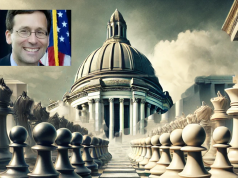Incoming Managing Director Isaac Kato and the Seattle Techstars Northwest Hub have a 20-Year Head Start with the Class of 2020
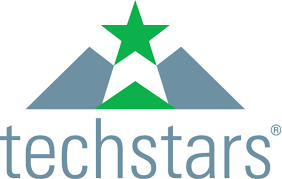
2020 marks an auspicious milestone for Techstars Seattle — the twentieth year of an audacious experiment in new business incubation, lean design and development innovation, and customer-driven, market-centric startup realization. On this second lap of the digital decathlon, Techstars’ can already boast a constellation of proven performers —all-stars like Remitly, Outreach, Zipline, Skilljar, and Bizible in its interstellar orbit.
Twenty years after cofounders David Cohen and Brad Feld began cultivating the original startup community in Boulder, CO (to be followed by Boston and Seattle not long after), the team has achieved its vision as a worldwide network dedicated to helping entrepreneurs succeed.
Startup Week, Startup Weekend, and the Techstars Startup Accelerators have helped create tens of billions of dollars in value and tens of thousands of jobs. Techstars currently facilitates its Startup Weekends in 630 cities in 110 countries with over 70,000 attendees annually. Startup Week takes place in 147 cities in 16 countries with over 100,000 participants annually. And the three-month Startup Accelerators have helped more than 1,700 companies.
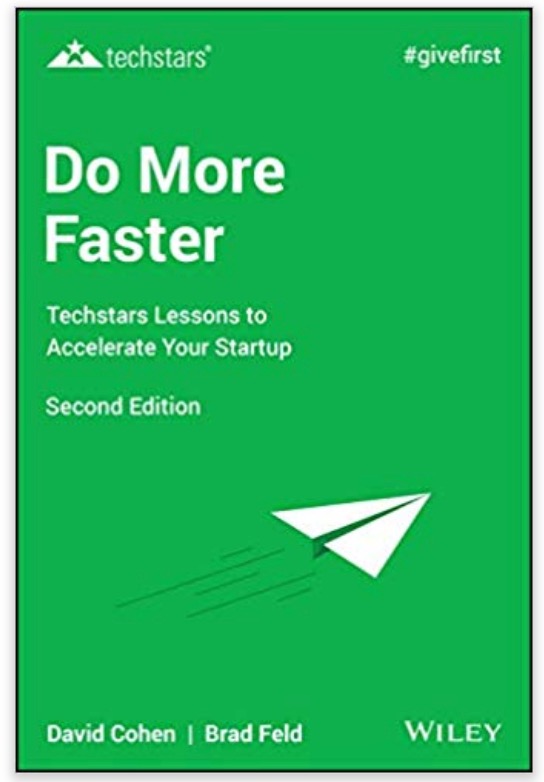
What could well be regarded as the playbook for Techstars’ perpetually winning startup seasons is now in its second edition but its original title could not be more timely. “Do More Faster” is the ultimate mission statement for the forward- thinking network. Techstars companies are taught to think and respond at a speed where change can and will happen fast.
There are multiple examples of Techstars companies that have learned to do more faster. SendGrid figured out how to scale their email delivery infrastructure to 20 million emails a day in under a year. Oneforty rallied a community of thousands of Twitter application developers in just a few months. Intense Debate went from concept to being installed on hundreds of blogs in the course of a single summer. How do the fast companies do it? They focus on what matters and make massive progress in the areas that make the most impact.
What’s the secret to Techstars’ rapid growth and the success rate of companies who go through their accelerator programs? The reasons can be distilled into three unique ingredients: practicing the principles of Do More Faster, integrating mentorship deeply within the accelerators, and promoting community by giving first.

Mentorship.
Techstars is interested in deep and engaged mentorship, where mentors want to develop a relationship with an entrepreneur and be involved for the long haul. Their approach results in as many as five mentors working closely with each company to help them excel and accelerate.

More Faster.
Matt Mullenweg, founder of WordPress and a longtime Techstars cohort put it this way: “In a rapid iteration environment, the most important thing isn’t necessarily how perfect code is when you send it out, but how quickly you can revert. This keeps the cost of a mistake really low. Someone can go from idea to working code to production and, more importantly, real users in just a few minutes. I can’t imagine any better form of testing.”
As Steve Jobs famously remarked, “Real artists ship.”

Giving First.
In great startup cultures, everybody is giving everyone else credit. Ideas are judged on merits, not on who came up with them. Great startup cultures also know that they must give of their time to give their customers exactly what they ask for. Startups need to be maniacally focused on defining who the customer is, what the customer wants and needs, and what the customer will value enough to pay for now. It starts well before a single line of code is written. These cultures value talking to as many potential customers as possible before a product is conceived. They make customer feedback a key part of the process once the product or service is delivered. Great startup cultures are rarely surprised by customer issues because they are proactive and process-oriented about understanding everything they can about their customers.
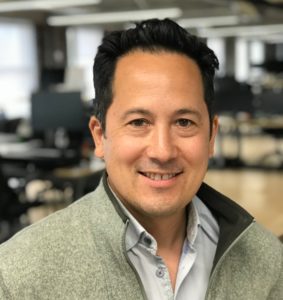
We connected with Isaac Kato, the new Managing Director of Techstars Seattle, who has been both a leader and a founder in the Techstars family of companies. His stewardship at Techstars follows his role as president at MightyAI, a Seattle startup that developed training data for computer vision models and was acquired by Uber last year. Previously, Isaac found and led an Iceland-based data center company, Verne Global, commuting to work between three different countries.
Seattle24x7: Isaac, you are described as both a serial entrepreneur and an investor. It sounds like the perfect profile to lead Techstars Seattle.
Kato: As an entrepreneur, I’ve led three companies, two of which I started. Of those, two have exited, and one is a large, independent company. My first company, Sven Technologies, was a 3D graphic software company which we sold to a public CAD company. The second, Verne Global, is a data center business I started in Iceland. Today, they are one of the largest independent third-party data centers in the Nordic region. Most recently, I was hired as president of Mighty AI, a machine learning business that was acquired by Uber last year.
On the investor side, I was a professional investor for about a decade, most recently with General Catalyst Partners. I’ve made angel investments along the way as well.
Over the years, I’ve gone back and forth between the operator and investor roles, and I’ve found that they’re quite complementary. Being an investor helps with many aspects of being a good startup entrepreneur, and being an entrepreneur gives one a great deal of insight, perspective, and credibility as an investor in startups.
The Managing Director role at Techstars Seattle is the perfect amalgam of investor and entrepreneurial roles. Wearing my investor hat, I select the companies that we admit to our program, and when they’re in program, I wear my entrepreneurial hat to help the founders build great companies and get connected to Techstars’ worldwide network of investors, mentors, customers, and partners.
Seattle24x7: What else about your background has led to your interest in developing and accelerating startups?
Kato: My connection to Techstars goes back over 20 years when Brad Feld and Warren Katz invested in my first company. Brad is the co-founder of the Foundry Group, one of the leading early stage VC firms in the US. He put me in touch with Mighty AI and his partner, Jason Mendelson, who recruited me to Seattle.
Foundry Group is the lead investor in Techstars, and Brad is also a co-founder of Techstars, so when the Techstars Seattle MD seat opened up, it was a straightforward connection given my long history with them. Not coincidentally, Warren Katz is a colleague at Techstars —he runs our Air Force accelerator in Boston. It’s yet another example of the power of networking.
Lastly, and maybe most importantly, I love people – entrepreneurs tend to be motivated, passionate, and interesting folks, and I get to spend a huge percentage of my time meeting them and helping them out. What could be more fun?
Seattle24x7: Techstars has truly become a global entity. When you started Verne Global you spent several years shuttling between Iceland and a London office. What similarities do you find, if any, between Seattle and other Techstars’ capital cities?
Kato: Techstars now has 50+ accelerators across dozens of cities around the world. We run a consistent curriculum in each program, so a Techstars entrepreneur in our Bangalore accelerator will have a similar experience to a Techstars entrepreneur in Boston.
Of course, each accelerator managing director brings his or her own personality, set of experiences, and networks into the program, and each city has its own entrepreneurial culture.
I tend to think the Seattle accelerator is the best (but I might be slightly biased). In all seriousness, one of our core beliefs is that you can form entrepreneurial ecosystems in practically any community in the world – and we do just that, via not only our accelerators, but through our Startup Weeks, Startup Weekend, and corporate innovation programs.’
The London startup market is meaningfully larger than Seattle’s (at least in terms of VC dollars raised – London hit $14.3BN in 2019 vs $3.6BN for Seattle). However, because London is much larger geographically and is less tech-dominated, startup activity there felt far more distributed. Conversely, in Seattle, there are very clearly defined hubs where a lot of entrepreneurial energy and people tend to concentrate. One thing I love about the Seattle startup ecosystem is how supportive it is of its constituents. There is a genuine and widespread desire to grow the pie via mutual success. I feel great about the future of Seattle as a home for great startups.
Seattle24x7: Is this why you describe Seattle Techstars as a “Cohort?”
Kato: Cohort implies a longitudinal experience, rather than a one-off class of companies. With this cohort, Techstars Seattle enters our second decade – we’ve been running for a long time! One great aspect of this longevity is the fact that there is a large population of Techstars alums in the area who tend to be highly supportive of each other.
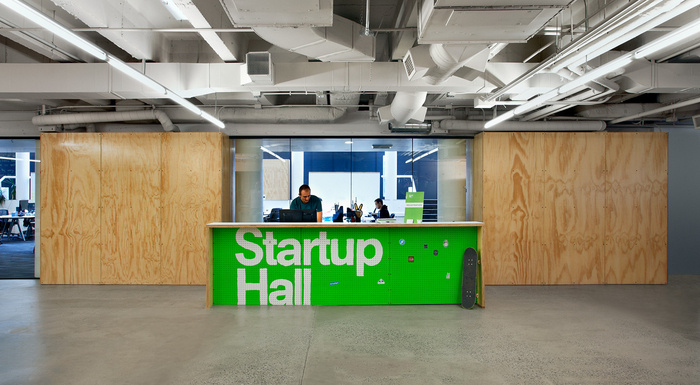
Seattle24x7: What are the primary characteristics that Techstars looks for in onboarding a new startup venture? What attributes make a Techstars company successful?
Kato: We always say that the first three criteria we assess when evaluating companies are “1) team, 2) team, and 3) team.” After that, we look at market opportunity, traction, and business idea. So, not surprisingly, we spend the majority of our effort trying to determine if the founders of a company have what it takes to become great entrepreneurial leaders. Some of the characteristics of successful Techstars teams are vision, passion, brilliance, grit, humility and a growth mindset, experience working together, and something we call “founder/market fit” – meaning that the founders have an innate understanding of the problem they are trying to solve.
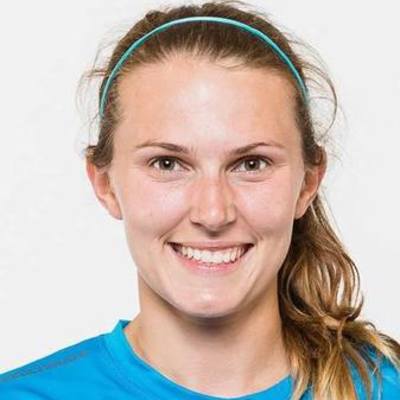
Qxhna Titcomb
We recruit for the next cohort year-round. Applications open in July, close in October, and then we go into a frenetic period of application evaluation and interviews. We ask our finalists to present to a screening committee consisting of experienced early-stage investors and entrepreneurs. From there we pick ten founding teams to enter the new cohort.
Seattle24x7: How has the general climate for startups changed, if at all, in the past few years? Are there new requirements for startups today?
Kato: With regard to the Seattle and Pacific Northwest climate specifically, I think it’s only gotten better and better and will continue to do so for the foreseeable future. Not so long ago, companies up here could credibly claim that they needed to move to the Bay Area in order to access capital. This is emphatically not true anymore.
Ten years ago, it was not uncommon to hear a Silicon Valley VC say, “I only invest in companies within a 45-minute drive of Sand Hill Road.” Today, that paradigm has been largely shattered, and Bay Area VCs regularly travel up here and invest in Seattle and PNW startups. The other thing that continues to work in our favor is that the Bay Area tech giants are all building a substantial presence in our area. This results in an influx of technical, product, and business talent, which only feeds the pool of future entrepreneurs.
20 Years of Techstars
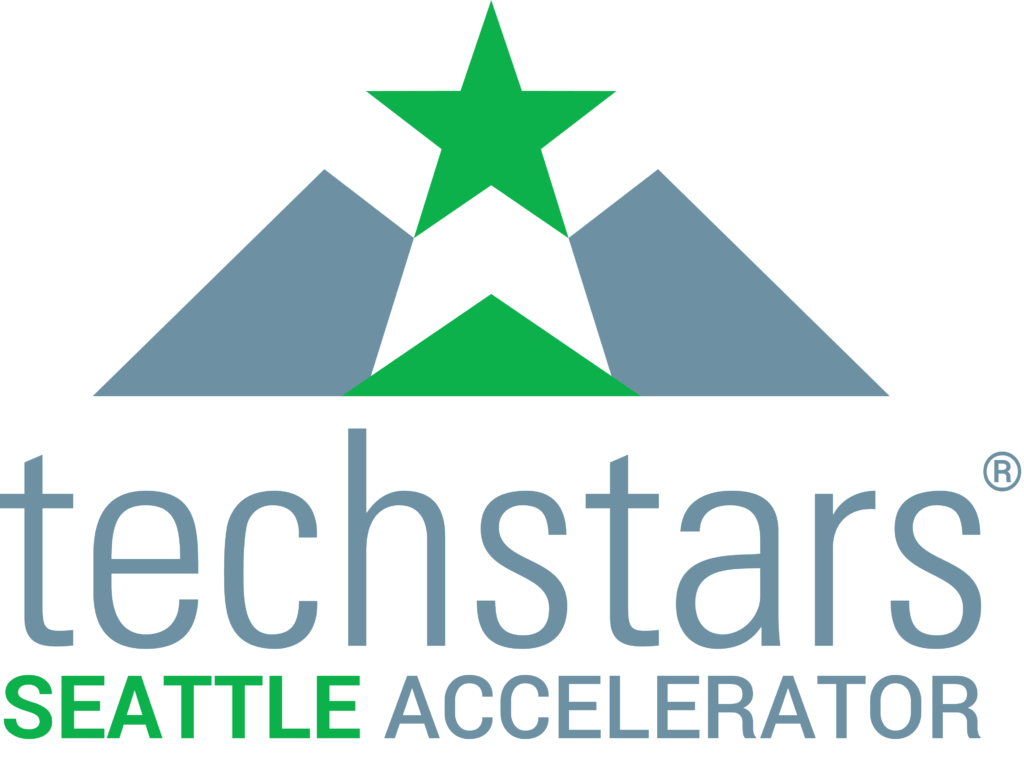
Summer 2007
Techstars hosts its first Accelerator program
in Boulder, CO
David Brown and David Cohen team up again (their 3rd company together) hoping to help entrepreneurs scale their businesses.
July 2007
Andrew Hyde co-founds Startup Weekend and hosts the first event – Boulder, CO
2009
Marc Nager, Clint Nelson, and Franck Nouyrigat join as co-founders of Startup Weekend, set up office in Seattle, Washington.
2009
Techstars launches first venture fund, Techstars Ventures 2009 ($5M).
Techstars launches the Boston Accelerator.
2010
Startup Digest joins the Startup Weekend family.
Techstars launches the Seattle accelerator
First Startup Week happened in 2010 in Boulder.
2011
New programs in NYC & Seattle
2012
Techstars raises second seed fund, Techstars Ventures ($25M).
2013
Techstars acquires Excelerate Labs to create the Techstars Chicago Accelerator.
Techstars launches first international accelerator by acquiring Springboard in London.
2014
Techstars Ventures 2014 ($155M) created.
Startup Week expands to 14 new cities, including Canada
2015
Techstars launches six new programs including a partnership with Target and expansion into Germany, Israel and South Africa.
Startup Week goes overseas, expanding to Europe, Africa and Asia
Techstars acquires UP Global to join forces in building the worldwide network that helps entrepreneurs succeed.
2016
Techstars opens new programs in Germany and the US, including the first-ever Music Accelerator run by Techstars and leading companies in the global music business.
By 2016, there were 47 Startup Weeks worldwide with 83,000+ attendees.
2017
Techstars continues to expand, opening accelerators in Adelaide, Paris, Dubai, Oslo & more.
Techstars announces joint venture with ANSR to create Techstars India.
More generally, it’s never been easier to start a company, given all the easy to use, free or low-cost tools available to founders. It simply requires less capital to get a company going. Furthermore, there is so much free educational content available on how to build a startup – skills like fundraising, agile development, and entrepreneurial leadership are no longer dark arts.
Seattle24x7: Your three-month accelerator program focuses on three phases: mentorship, growth, and investment. What are the rites of passage for each?
Kato: Our three-phase curriculum has been developed for over a decade now. During the first month, when we help our companies find a network of functional, industry, and entrepreneurial mentors, we’re setting them up for success for the rest of the program and beyond.
These mentors help the companies think through their various business and technology challenges and find customers, investors, employees and partners — all things foundational to startup success.
Once that network of mentors is in place, we encourage our companies to really press on driving growth. Most of them will want to fundraise within a year of graduating from Techstars, if not sooner, and a key component of any winning capital raise is showing forward momentum.
So, before embarking on their efforts to seek money from investors, we want to make sure that the companies present an attractive growth profile.
Then, it’s off to fundraising school in the final month of the program. In this phase, we discuss the elements and process of a successful capital raise. We also do a ton of rehearsal — lots of pitch practice and mock VC interviews, honing the companies’ presentations and responses to investor questions. Fundraising is like any performance or sporting contest – you have to train for it and build up the relevant muscles. We ensure that our companies are in top shape to go out and successfully raise capital, if and when they need it.
Seattle24x7: In terms of your startup philosophy do you, or Techstars, ascribe to the Lean Design or Lean Startup way of thinking? Do you believe in the concept of constantly iterating based on user feedback?
Kato: Very much so. We find that companies which take the Lean Startup approach are more likely to succeed.
Seattle24x7: Much has been written about the ability of a startup to “pivot” in its development and market entry? Would this apply to Techstars companies? What percentage of those in a class emerge with a different vision than when they began?
Kato: Pivots are a natural part of any startup that embarks on the Lean Startup journey, and at Techstars we are very comfortable with companies pivoting before, during, and after the program. It’s a natural outcome of capable founders being excellent, rapid learners.
I’ll be surprised if fewer than 5 of the 10 companies in our current cohort don’t pivot to a greater or lesser degree at some point on their entrepreneurial journeys.
Two of Techstars Seattle’s most successful alumni, Remitly (TS Seattle ’11) and Outreach (TS Seattle ’12), both bonafide unicorns who have raised $420M and $239M, respectively, both pivoted. This, by the way, is why we put such a huge emphasis on the founders during our selection process. Pivoting can be a gut-wrenching experience, and we look for teams who can successfully navigate, intellectually and emotionally, this challenging experience.
Other major successes in the broader Techstars network include Sendgrid (acquired by Twilio for $3BN), Pillpack (acquired by Amazon for ~$1BN), and ClassPass (raised $549M). However, Techstars has spawned many significant entrepreneurial success stories.
Seattle24x7: How does Techstars work with the established tech community? You mention collaboration. Do you seek out mentors or advisors from the local or national community?
Kato: One thing I love about Techstars Seattle is that we serve very much as a community asset. We work with almost every investor, co-working space, venture studio, accelerator, meetup group, and significant tech company in Seattle, and with a number of them in the broader Pacific Northwest. We propagate a nearly constant flow of people, ideas, and capital to and from Techstars Seattle and the members of our ecosystem.
Our mentor pool forms a critical component to the success of Techstars Seattle. Every Techstars accelerator relies heavily on its mentors to provide guidance and network connections to its companies. The Techstars Seattle mentor pool is deep, wide, and highly engaged with our companies, and given the breadth of people with relevant entrepreneurial and subject matter expertise locally, we have a huge well of talent from which to draw. All that said, I will regularly go outside of Seattle to find excellent mentors for our companies, especially for companies with specific, niche needs. We live in a globally connected and relevant world!
Seattle24x7: Wikipedia has described the Techstars business model as follows: In exchange for 6% common stock, each company accepted into Techstars currently receives $20,000 plus a $100,000 convertible note, access to the Techstars network for life, over $1M worth of perks (such as $25,000 – $100,000 in AWS credits), and a three-month accelerator program. Is that a fair summation of the business model?
Kato: Yes – this is the basic offer that Techstars accelerators have made to companies entering the program. We take a 6% stake in our companies hcih represents our investment in common stock in order to assure alignment with the founders.
We earn our living via our investment returns and partnerships and the sponsorships that corporations pay us to foster innovation and entrepreneurship in various forms. At the highest level, Techstars is a worldwide network that helps entrepreneurs succeed. We believe that we can foster a better future a better future of entrepreneurs by connecting investors, corporations and ecosystems.
Seattle24x7: Techstars has been contracted to work with the United States Airforce’s technology accelerator known as AFwerX. We salute your patriotism. What distinguishes this program and what has Techstars learned from, or contributed to, this experience that stands out for you the most?
Kato: AFWERX is the innovation arm of the US Air Force. Techstars runs three accelerators for the Air Force: Air Force Accelerator Powered by Techstars, Techstars Starburst Space Accelerator and Techstars Allied Space Accelerator.
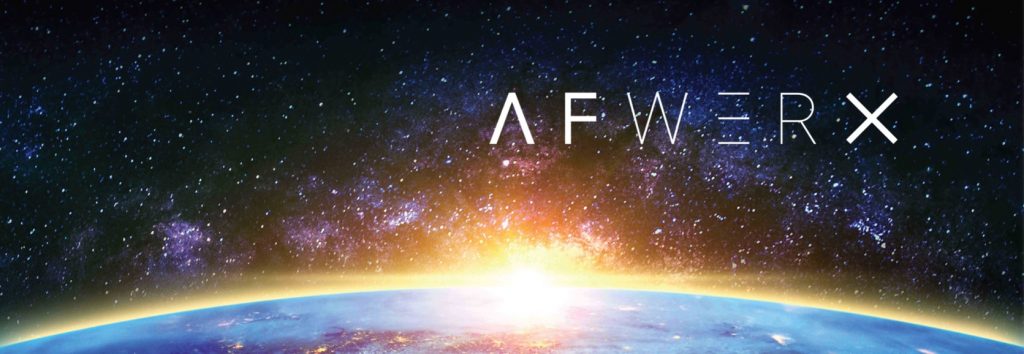
With regard to the space accelerators, Techstars has brought together vital industry leaders, both public and private, who are willing to provide guidance to entrepreneurs, helping them navigate the complex industry and provide unprecedented commercial support and mentorship. The programs help founders achieve two years of commercial traction in an accelerated three months.
The Air Force Accelerator has five main main goals which are:
- Seek out and foster the introduction of “non-traditional” startup companies who would otherwise avoid the DoD
- Re-train the Air Force in how to buy products from startup companies without killing them or turning them into defense contractors
- Give the Air Force, and our corporate sponsor BAE systems, an early look into what direction the startup world is going in aerospace
- Accelerate the procurement and delivery of state-of-the-art products into warfighter’s hands
- Leverage the multiplier of private capital investing in R&D towards Air Force needs
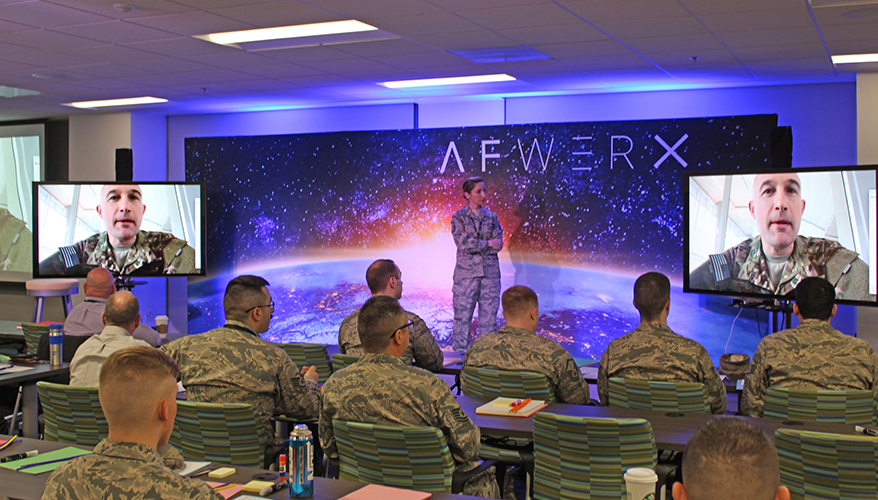
We’ve seen massive success in several of the companies that have come out of these accelerators including Zeno Power Systems’ founders being honored with the inclusion Forbes’ prestigious 30 under 30 list, OrbitFab raising $3M in funding to make orbital refueling easier and Morpheus Space won an U.S. Air Force Small Business Innovation Research contract and a NASA Jet Propulsion Laboratory purchase order after going through the Starburst Space Accelerator.
Companies in the three cohorts have won over $20M in government contracts as compared to the $14M of private capital they have raised, saving the companies significant equity. Air Force has significantly simplified the SBIR program to speed up awards, relieve the companies of learning government contracting, and buy from them in the same way they sell to their commercial customers. BAE systems have also begun sifting in products from startups into their larger defense programs.
Seattle24x7: The 2020 Techstars class has ten companies participating. How do you divide your time and effort in allocating your attention and resources to each?
Kato: For the 13 weeks that we are in session, I seek the forgiveness of my family and friends, put aside all distractions, and give as much time as I can to the companies. They’re committing 13 weeks to us, so it’s the least I can do for them. Each company has different needs, qualitatively and quantitatively, at different times during the program, and we intentionally restrict the cohort size to ten companies to ensure that they get as customized an experience as possible (and as much of my time as possible). We have a lot of late night and weekend conversations.
Seattle24x7: What is the role of Demo Day in showcasing the work of these companies?
Kato: Demo Day is a celebration of the ten companies in our cohort and of the PNW tech community at large. It brings a broad set of customers, investors, entrepreneurs, tech execs, future founders, and supporters together to acknowledge and fete the huge efforts and progress of the companies in the cohort. Not surprisingly, an enormous volume of networking ensues. Who knows – maybe the founders of the next great Techstars Seattle company will meet at Demo Day this year! [24×7]
The 2020 class of Techstar Seattle companies hail from Seattle, Portland, Vancouver, Tallinn, Atlanta, Ghana, SF, and Philly.
Here is the Techstars Class of 2020 seating chart:
Caravel – Real-time R&D for commerce
Introwise – Unified platform for events and communities
MD Ally – Enabling non-emergency 911 navigation to more appropriate sites of care
neu – The hassle-free cleaning solution for vacation rentals
Olive Technologies – Transforming how enterprises evaluate and purchase tech with community and AI
Retrocausal – Computer Vision Intelligence for Occupational Analytics, Efficiency, and Training
Shotcall – Creating meaningful engagement and media opportunities through gaming and streaming
Spyn Pay – Credit card that helps you spend confidently and responsibly
Yave – Yave decommodifies coffee and cacao by matching farmers with roasters
Zendoc – Smart contract management
To stay up to date on Techstars milestones, be sure to follow @techstars.
Visit Techstars Seattle amd sign up to get updates and exclusive Techstars news, announcements and more at http://www.techstars.com/programs/seattle-program/












